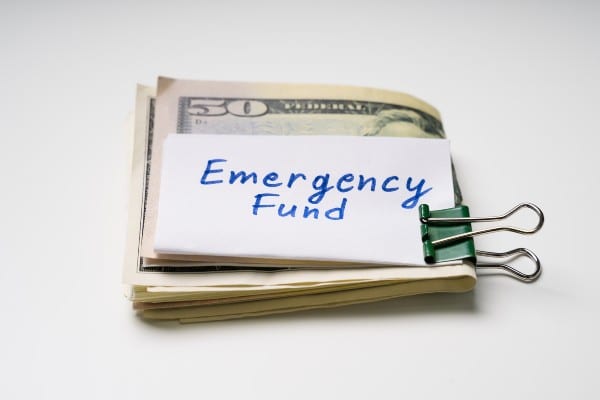According to a Bankrate survey, 23 percent of respondents said their biggest financial regret is not having enough money in their emergency savings to withstand the COVID-19 outbreak. The coronavirus pandemic has impacted the financial standing of many Americans. While jobless claims have fallen since late March, nearly 18 million people are still receiving unemployment benefits.
Even as businesses reopen, cases of COVID-19 are still rising in many parts of the United States. It’s possible that we could see another round of closings until there’s a vaccine or a more stable treatment. This uncertainty makes having an emergency fund during COVID-19 essential.
So, how much do you need in your emergency fund? What should you consider as you plan to save?
Take a look at these tips:
Start With the Recommendations
Many financial advisors would advise you to have enough money in an emergency fund to cover three to six months of expenses. Therefore, however much money you need to cover your current costs (e.g., housing, groceries, utilities, car payments, etc.), is what you need to plan for each month. And your emergency fund should cover three to six months of these essential costs. This would not include going to the movies, eating fast food, or buying the latest smartphone, leading to the next point.
Stick to the Essentials
When it comes to emergency funds, the goal is survival. The COVID-19 outbreak could impact the economy for years to come. Therefore, you need to plan to make your funds last until you find another job or can generate more income. This will require you to choose what is and is not essential. Yes, a trip to the nail salon every once and awhile may not be a big deal. However, weekly trips to the hairdresser or eating takeout each day need to take a backseat. Stick to what is essential for you and your family to live and function safely.
Don’t Forget About Insurance
It’s easy to forget about insurance when you are planning to fund your emergency savings. Unfortunately, infections, broken bones, and colds don’t stop during a crisis. So, you need to factor healthcare costs into your emergency savings plan during the COVID-19 outbreak.
There are options like COBRA or even the healthcare marketplace. Losing a job is a qualifying event to select coverage for the latter. However, these options may not be the most affordable. You and your family may want to look into local or private clinics. Some places may allow you to pay on a sliding scale. Also, don’t forget about car and home insurance. You can research and compare plans to locate a lower price and put more money into your emergency fund.
Start Small—And Stay Calm
Savings three to the six-months’ worth of income may be overwhelming. This is especially true if you are currently living paycheck-to-paycheck. If you can’t put a large amount of money away, start with what you can do. Whether you have $100 or $500 leftover after the bills, start to save what you can.
You can increase your savings by putting your money in a high-yield savings account. Also, consider placing some savings into a taxable investment account. This step allows you to take your money out without penalty. Both of these strategies can give you the head start you need to create an emergency fund during COVID-19.
Emergency Funds Turn a Scary Situation Into an Inconvenience
Having a fully-funded emergency savings account during COVID-19 allows you to have some control over your finances during this crisis. You will have the money to weather a job loss. As a result, you don’t have to panic. When you know that your expenses are covered for the next 12 to 24 weeks, you can make balanced financial decisions. From there, you can get back on your feet and find your next job or income-generating opportunity.
For more advice on creating an emergency fund, read: 7 Reasons to Save More Money or Boost Your Emergency Fund








